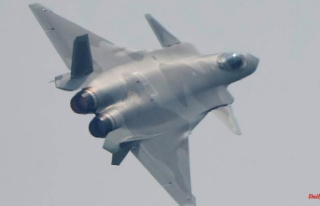The Azov steelworks was long considered the last bastion of Mariupol before the Russians took it in mid-May. The Ukrainian fighters who subsequently surrender and are taken prisoner of war are even threatened with the death penalty.
Ukrainian soldiers from the Azov regiment who surrendered in Mariupol in eastern Ukraine could face the death penalty, according to a leading pro-Russian separatist official. The Russian news agency RIA Novosti quoted Yuriy Sirovatko, the justice minister of the self-proclaimed Donetsk People's Republic, as saying that for the "crimes" the fighters were accused of, "we have the heaviest penalty: the death penalty."
All "prisoners of war" are on the "territory of the DNR", ie the self-proclaimed People's Republic. Among them are 2,300 fighters from the Azov steelworks. Sirovatko added that the Azov regiment was "considered a terrorist organization" and that all fighters belonging to it were "under criminal investigation". Russia's Supreme Court has yet to decide whether to classify the Azov regiment as a terrorist organization. Up to 20 years in prison for membership alone.
Such demands had already been announced from Moscow. The chairman of the Duma's foreign affairs committee and negotiator in negotiations with Ukraine, Leonid Slutsky, called the Azov fighters "beasts in human form". He also demanded the death penalty for them.
Hundreds of Ukrainian fighters defending the strategically important port city of Mariupol on the Sea of Azov surrendered between May 16 and 20 after holding out for weeks in the underground tunnels of the Azov steel mill. Among them were members of the Azov regiment, a former paramilitary unit later integrated into the Ukrainian army.
The Azov regiment used to have ties to right-wing extremist groups, and the Russian government still calls it a "neo-Nazi organization." The government in Kyiv has repeatedly stated that it wants to exchange Azov fighters for Russian prisoners of war. Moscow, on the other hand, said the Ukrainian fighters should be brought to justice. On Saturday, Chancellor Olaf Scholz and French President Emmanuel Macron called on Russian President Vladimir Putin to release the captured fighters from the Azov steelworks.












